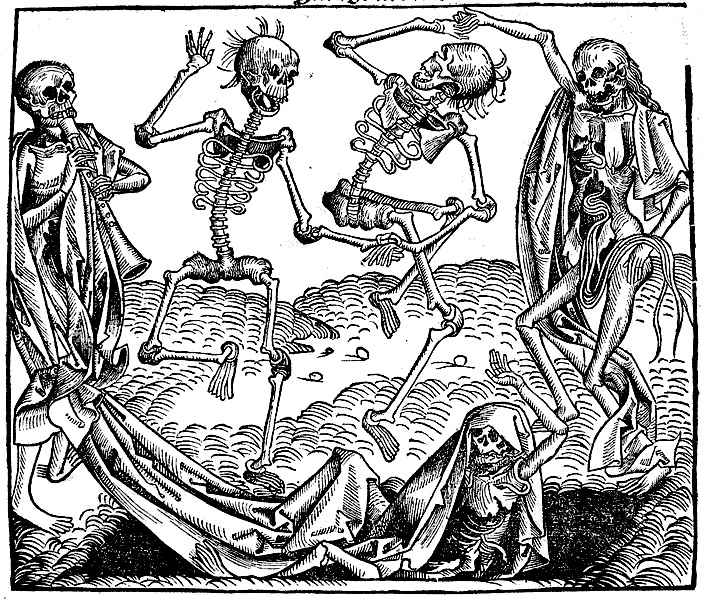When an "Act of God" happens--a flood, a hurricane, an earthquake--it is always the least among you who suffer the greatest losses. People without money to rebuild, who live in the floodplain, who depend on interrupted services, who couldn't afford insurance, who didn't have a car to evacuate, who didn't, who couldn't, who can't. Those are the people who suffer most from "Acts of God." God makes distinctions like that. God favors the wealthy, who have the resources to prepare for the worst, to endure it, and to rebuild afterwards. For everyone else, good luck and good night.
God is a mean son-of-a-bitch that way. But so is the market. When a famine happens--which is to say, when conditions of mass starvation start piling up the bodies enough so you notice--the underlying cause is never an absolute absence of food, not in a world with a global market like ours. The food is there; it's just too expensive for (some) people to buy. So yes, a drought, crop failure, disease, and other unanticipated events can start the ball rolling towards famine. But it's always, always, always the underlying problem of food insecurity that makes a potential famine into a reality. People only starve to death when they don't have the money to buy food, so only the poor starve when the prices go up.
The US government is also a mean bastard-ass son of a bitch. When a funding shortfalls happen, they have a plan, a plan to make sure that the least among us suffer the most. When the government "shuts down," it has a plan for how to continue, because things don't really shut down when there is a shutdown. A shutdown is a state of exception when the government gets to do things it normally can't do, like close the Environmental Protection Agency, de-fund WIC, close the national parks, send a lot of government employees home, and all sorts of other stuff. A shutdown is a moment in which a choice gets made about which laws to obey and which laws to ignore, when the government gets to decide that some people are essential and some people aren't.
This is a choice, a choice that happened long before Ted Cruz was a thing we had to know about. This is a choice the government made. Republicans believe that WIC should be de-funded and the EPA should close down, and while the Democrats say they disagree, they were willing to compromise, temporarily, as long as everyone agreed that the important stuff, the essential stuff, would continue.
Partisans can't see this, even the smart ones. And sure, republicans who think it was all Obama's intransigence that caused this are living in fantasy land. But it takes two to tango, and the Democrats have plenty of blood on their hands, enough that it doesn't really matter who has more. Ted Cruz gets to play maniac, and the DNC gets to play its favorite role, the reasonable liberal who doesn't actually have the power to do anything. When the Tea-Party took a hostage, the Democrats said, "Go Ahead. Make my day."
Seriously. If a government shutdown meant that planes would be grounded, it would never have happened. If a government shutdown meant the NSA would turn off the lights, not a single Republican would have signed on. If it meant that soldiers would stop killing, that police would stop putting people in jail, or that any of the many things that the government does to keep the economy running would come to a halt, it would be a cold day in hell before Ted Cruz would make himself the face of the shutdown. But the Office of Management and Budget helpfully requires every federal agency to have a plan for all the important stuff to continue, if ever there's a shutdown. They must distinguish between essential services and inessential services, between the government functions that matter and those that don't. That means that when the Republicans threaten to blow up the government if they don't get everything they want, they know that the technocrats won't let them hurt anyone who matters. The OMB won't let them hurt the business community, or wreck the economy, or imperil America's status as world's warmonger. They know that poor people will suffer the most, and rich people will suffer the least. There are some things that transcend partisan divisiveness.

